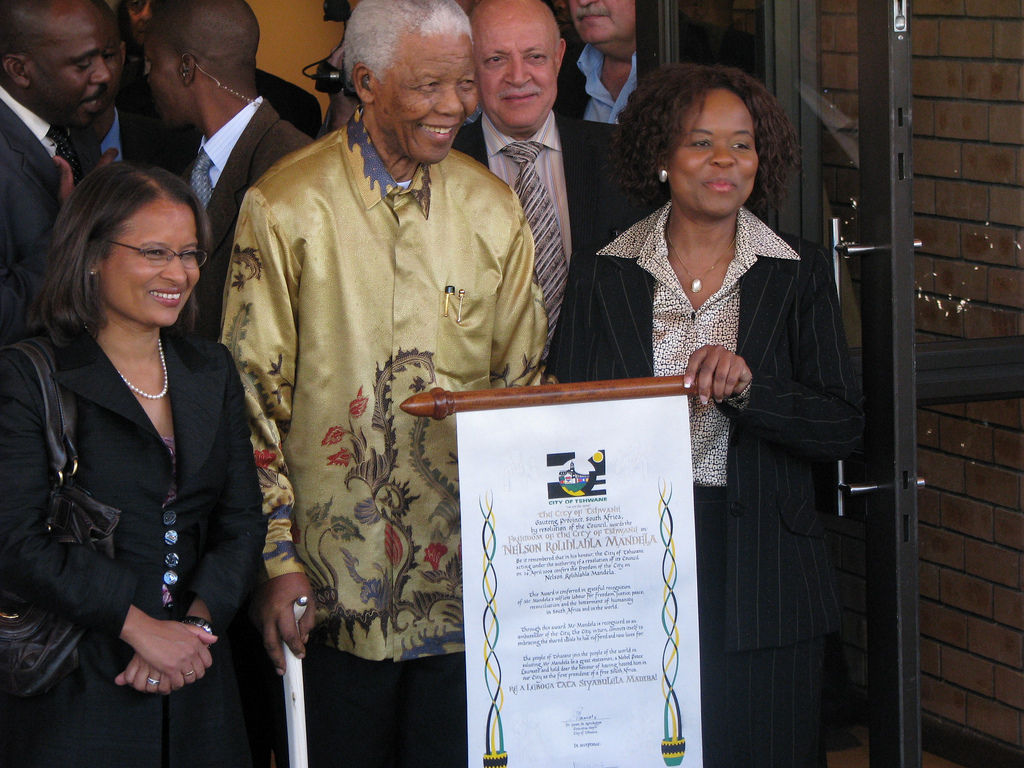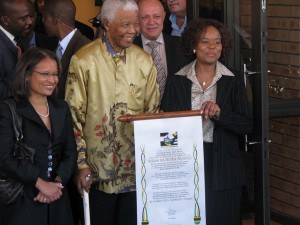A Laurier student’s close connection to Mandela


Nazeefah Laher doesn’t have a strong memory of her first in-person encounter with Nelson Mandela, but she still has the memento — a hat, signed by him during a visit to her cousin’s pre-school when she was six years old, living in South Africa.
Her parents still have the hat, tucked away in a memory box at their home in Thornhill, Ontario near Toronto. For their family, it is of particular significance
Laher, who is a fourth-year health sciences student at Wilfrid Laurier University, was born in 1992 in South Africa, two years before the end of the apartheid system of racial segregation. Her parents and grandparents – classified as Indian according to the 1950 Population Registration Act – actively fought against it.
This meant engaging in protests or other forms of civil disobedience, like boycotting school. Some extended family members were targeted by the government for their involvement or put under house arrest. Laher’s great uncle, for instance, had to flee the country after police came looking for him.
“It was really dangerous, because it could have led to detention without trial or persecution of family and friends. By boycotting and by doing all of this, you put yourself and your family at risk, too,” she said.
While Indians were not permitted to be officially part of the African National Congress, the party under which Mandela was elected to the presidency and which was banned during the apartheid period, Laher’s family worked in support of it as they fought for equality.
Life was difficult. Transportation, education, recreation – everything was divided into white and non-white access. If Laher’s mother wanted to go out to a restaurant, she had to go to the airport, because it was considered international territory and the only place where apartheid laws didn’t apply.
It was, as her parents described to her, “a very abnormal way of living.”
Apartheid began in 1948 and ended in 1994 when Mandela was elected, though many of the apartheid laws were abolished in 1991. Those elections were the first time Laher’s parents were allowed to vote, at 28-years-old.
“I don’t think I’d be where I am today if it wasn’t for the fight, the protesting of my parents or my grandparents, for what Nelson Mandela did, because being a person of colour you weren’t considered, I guess, equal to people who were white,” said Laher.
She continued, “I’m very proudly South African and I’m very proud of my family and people. With Nelson Mandela, he’s someone who, ever since I was little, I’ve always looked up to him.”
His legacy, she believes, is one of inclusion. Laher particularly admires Mandela’s actions to unify the country after his imprisonment and during his presidency.
“I think what was so special about him was that when he was released, after 27 years, he could have, with the snap of a finger, could have started a civil war, but he chose not to,” she said.
Mandela was incarcerated from 1962 to 1990 and was convicted of sabotage. Indian-origin anti-apartheid activist Ahmed Kathrada — whom Laher’s great aunt worked alongside — was also given a life sentence.
The memorial service and state funeral brought to Laher’s attention just how much of an impact Mandela had on the entire world. He will, of course, always hold particular significance for South Africans.
“They call him Tata Madiba. He is the father of the nation.”
Laher added, “I think he’s someone who will continue to give people that sense of hope. I’m hoping that with his death it brings the country together even more, so people can realize what he fought for.”
Laher will be going back to South Africa over the holidays with her parents to visit her family. She hopes to pay tribute to Mandela and light a candle for the late leader.

